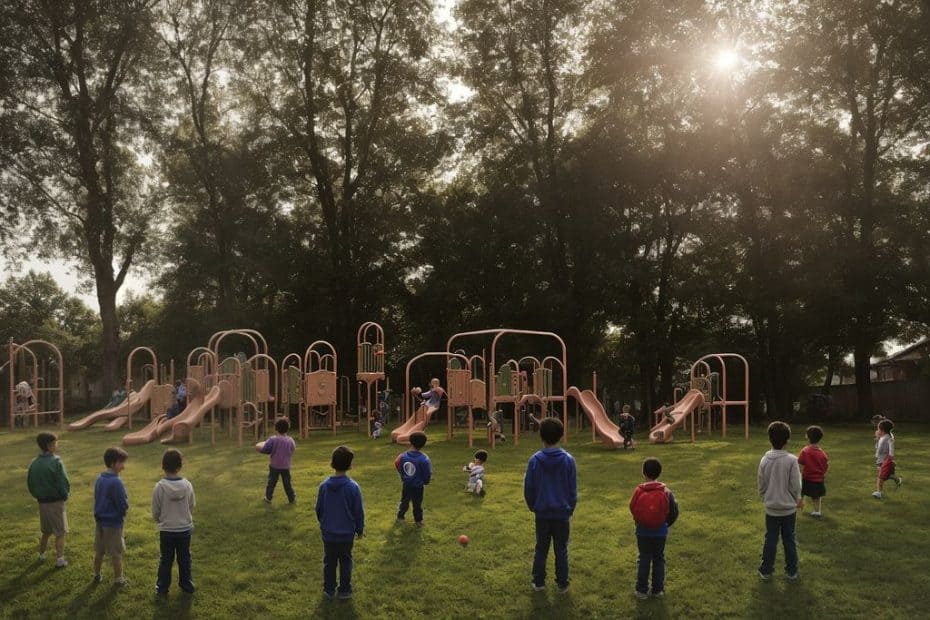A transparent child describes a situation in which a child is unable to integrate socially, experiences isolation, or is not accepted by other age groups. These children can feel as if they are "transparent" in the eyes of their peers, leading to feelings of loneliness and worthlessness. In the modern era, where social connections and integration into groups are critical to mental and social development, it is very important to understand the phenomenon and to support these children.
Possible Causes of the Phenomenon
If you think that you feel that your child is transparent, there are several reasons that can lead to this, one of which is to carry out parental guidance in Tel Aviv. Lack of social skills is another factor that may lead to this condition. Some children may have difficulties communicating with others, making it difficult for them to build social relationships. Also, children with different interests or personal tendencies that do not conform to social norms may feel excluded.
Other factors can include experiences of ostracism, lack of self-confidence, or even transition processes such as a new classroom or relocation. All of these can affect the way children perceive themselves and their place in society.
Parental Guidance in Tel Aviv
The support process for Transparent Child It starts at home, so parental guidance in Tel Aviv can be a significant tool. As part of the training, parents can learn how to support their children effectively. This includes understanding the child's emotional needs, acknowledging the social challenges they are experiencing, and learning how to encourage them to develop social skills.
Parents are encouraged to encourage their children to participate in social activities, such as sports teams, extracurricular activities, or community activities. It can offer opportunities to build relationships with other children and develop a sense of belonging.
Techniques for Improving Social Integration
There are a variety of techniques that can help a transparent child improve his social abilities. One of them is working on non-verbal communication. Parents can teach their children how to read body language, understand facial expressions, and respond appropriately. This can help them understand social dynamics and build relationships with other children.
In addition, it is possible to work on developing empathy, the ability to understand the feelings of others. It is an important tool that can improve social relationships and create positive experiences with their peers.
Support from professionals
In cases where social difficulties persist, it is advisable to seek professional help. Professionals such as psychologists or educational counselors can provide additional tools for dealing with the situation. They can offer personalized therapeutic techniques to help the child develop the required social skills and feel more belonging.
This support can include group sessions with other children, which can give the child a sense of belonging and improve their social skills.
Emotional Challenges of a Transparent Child
A transparent child may face emotional challenges that lead to feelings of loneliness and non-belonging. When the child fails to integrate socially, he may develop feelings of anxiety and anger. These experiences may make him feel that he is not considered and accepted, which leads to a feeling of lack of self-worth. These emotional challenges can affect his behavior, and in many cases he may become aggressive or, alternatively, enter a state of isolation.
Parents can pay attention to these signs and encourage an open dialogue with the child. Through emotional support, you can help them understand the feelings and experiences they are going through. Children need a sense of security and understanding, and when they don't get it from the environment, the result may be poor communication and difficulties in forming social connections.
The Role of the Social Environment
A supportive social environment plays a central role in the integration of a transparent child. Friends, teachers, and parents can greatly influence a child's feelings. When the social environment demonstrates openness and empathy, the child is more likely to feel comfortable trying to fit in. Conversely, if the environment experiences prejudice or misunderstanding, it can make the situation worse and make the child feel even more disconnected.
Promoting group activities and participating in social events can encourage the child to initiate new relationships. Parents should strive to create positive social environments in which the child can feel belonged and accepted.
It is worthwhile to encourage other children to be supportive and develop skills of accepting the other, which can lead to a significant improvement in the social status of the transparent child.
Social Skills Development
Developing social skills is an essential tool for a transparent child. These skills include the ability to communicate effectively, understand social situations, and respond accordingly. Children can learn how to recognize emotions in others, which can improve their social relationships. Tasks such as role-playing and group exercises can improve a child's self-confidence and help him cope with various social situations.
Parental Guidance in Tel Aviv Offers courses and workshops that focus on developing these skills. Parents can learn how to support their children in the learning processes, and encourage them to take part in social activities.
Children who feel more confident in their skills will be more open to trying to fit in and feel part of the group, which can improve their social status wonderfully.
Connections with the Education System
Schools can play a significant role in preventing the phenomenon of the transparent child. Teachers and educational staff need to be alert to signs of social isolation, and work to help children feel like they belong. Educational programs that promote values of solidarity and mutual respect may improve the social climate in the classroom.
In cases where social difficulties persist, it is advisable to seek professional help. Emotional therapists such as psychologists or educational counselors can provide additional tools for coping with the situation. They can offer personalized therapeutic techniques to help the child develop the required social skills and feel more belonging.


